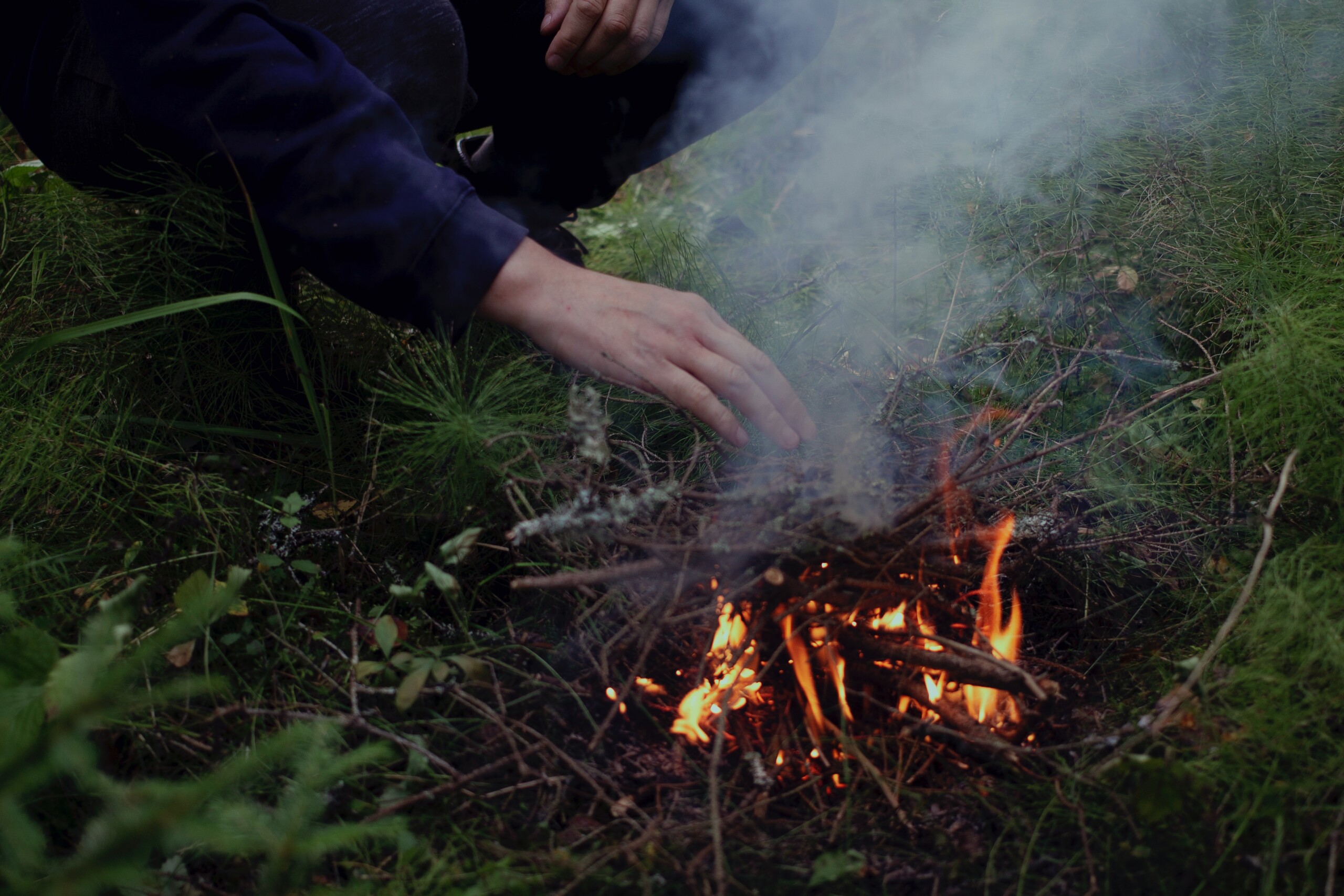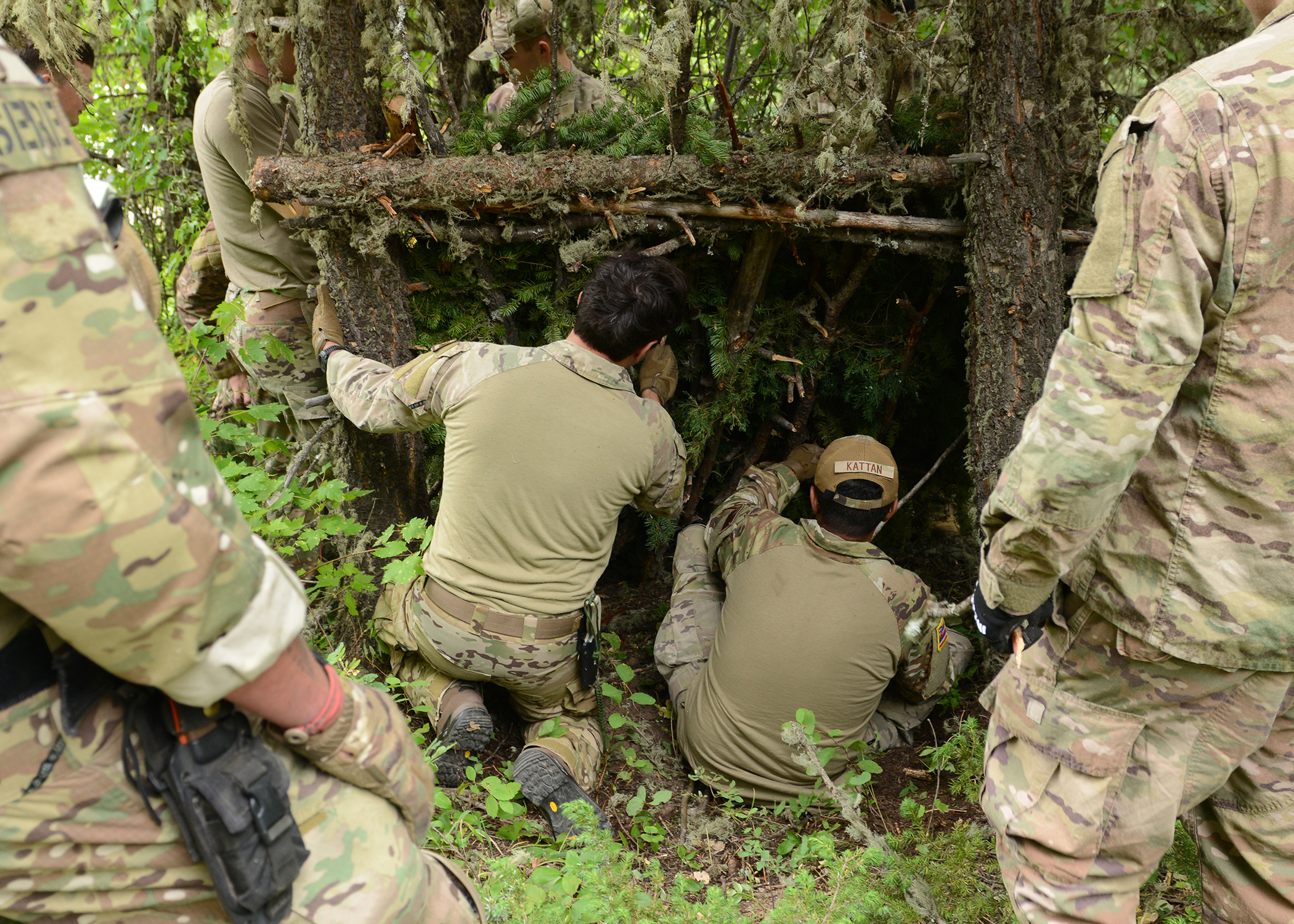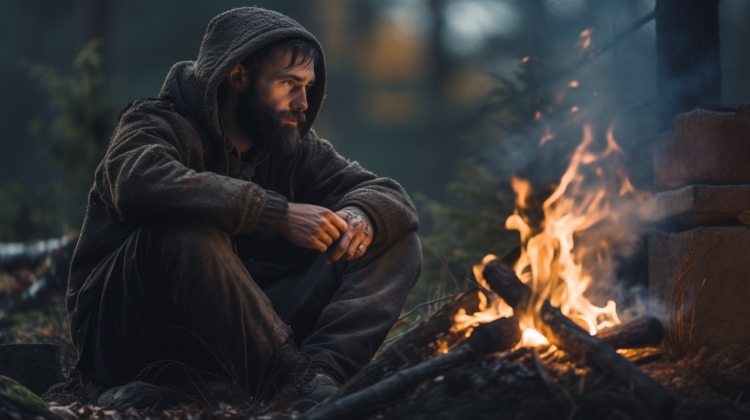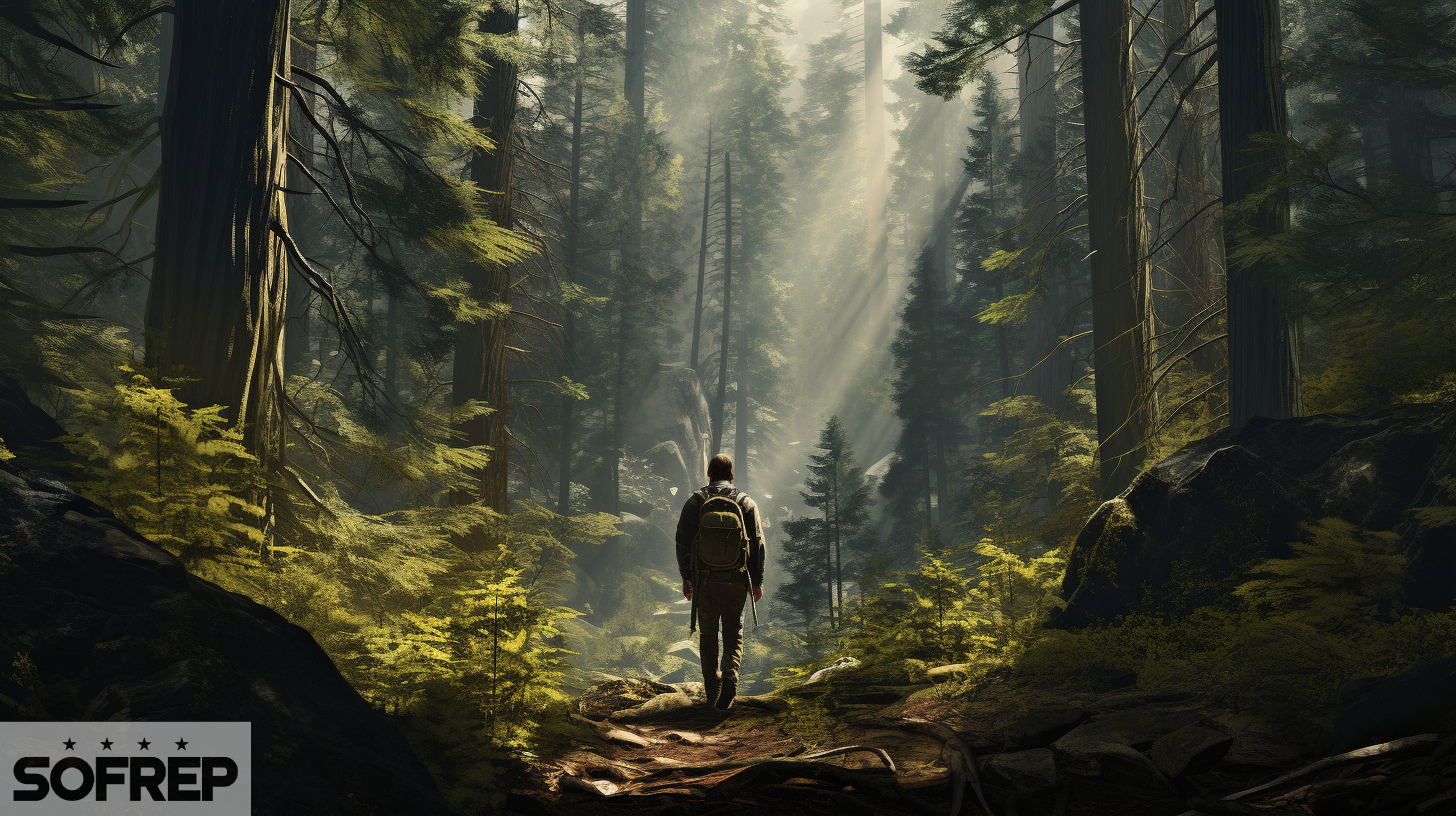Building a Survival Shelter: Your First Priority
When stranded in the wilderness and it looks like you might be there for the night, your immediate concern should be obtaining shelter. Exposure to the elements, especially hypothermia-inducing cold, can be fatal within hours. The key factors to consider when building a shelter include:
- Location: Choose a spot on higher ground, away from flood-prone areas and with protection from the wind.
- Insulation: Elevate yourself from the cold ground by creating a bed of insulating materials like leaves or pine straw.
- Heating: A fire can help keep you warm and provide a psychological boost.
- Personal or Group Shelter: If in a group, consider building a shared shelter for added warmth.
One of the simplest shelter designs is the lean-to. Find a downed tree at an angle or prop a large branch securely against a standing tree. Secure with cordage or vines, and layer smaller branches and debris for insulation and waterproofing.
Mastering the Art of Fire-Making
Fire is a vital survival tool, offering warmth, a means to cook food, and a signal for rescue. While carrying fire-starting devices is wise, knowing how to start a fire without them is a valuable skill. Begin with small tinder and gradually add larger sticks and logs as the fire builds. Fire not only serves practical purposes but also boosts morale and a sense of security.
Pro Tip: Any time I know I’m going to be venturing out in the woods, I carry a plasma lighter. Always. An electric arc is used to start the fire, and this is not affected by rain or wind. The temperature of that arc is over 2000°F (about 1100°C), hot enough to set just about anything you want ablaze. They use no fuel and are far less likely to have issues at high altitudes or extremely low temperatures. Get a blaze orange one so you can find it quickly when you need it.
Ok, so this piece was supposed to be about surviving without technology. You still have to know how to start a fire in the wilderness if you accidentally leave your plasma lighter at home. I’ll leave the details of that for another day.

Quenching Your Thirst: Finding Clean Water
Water is essential for survival but must be clean and safe to drink. If possible, boiling water is the best method, but other sources can suffice in dire circumstances. Rain, snow, and dew can be collected using fabric like a bandana. Some vines and cacti contain drinkable water when wrung out. Prioritize locating a freshwater source and remember to stay hydrated.
Foraging for Food: Nature’s Pantry
While finding food might seem daunting, it’s essential for sustenance. Familiarize yourself with edible plants in your environment and prioritize small, easily caught prey. Avoid expending excess energy on large game unless you have suitable tools. Some survival-friendly plants include:
- Cattails: Nearly all parts of the cattail are edible and can provide nourishment.
- Conifers: The inner bark of most cone-bearing trees is a source of calories and starches.
- Oak trees: Acorns can be eaten after removing bitter tannic acids through leaching or boiling.
Survival foods may not compare to gourmet meals, but they can sustain you until help arrives.
Pro Tip: If you only expect to be away from home for an hour or two, don’t go munching on mother nature. Use common sense. Remember, obtaining potable water is a priority before munching on nuts. If it does come to the point where you have to count on Mother Nature for sustenance, it is best to train yourself up first with books like this so you have a good idea of how to go about it. Always take a small amount of what you are about to consume and put it between your cheek and gum, letting it sit there for a few minutes to see if it causes any ill effects.
The Power of the Human Mind
While mastering essential survival skills is vital, the most potent tool you possess is your mind. Staying positive, focused, and adaptive is critical in any survival situation. As Tom Hanks aptly put it, “That’s the lump three feet above your ass.” Keeping a level head and a determined spirit can make all the difference.

Education and Preparation: Your Best Allies
While this article provides a glimpse into survival skills, there’s no substitute for hands-on learning. Seek out outdoor survival courses to enhance your knowledge and practical abilities. One such course, led by former Special Forces officer Mykel Hawke, offers valuable insights into surviving in the wild. Courses like these can equip you with the skills and confidence needed to navigate challenging scenarios.
In a world where technology has become an integral part of our lives, the importance of basic survival skills cannot be overstated. While we hope never to find ourselves in a dire situation, being prepared with the ability to build a shelter, start a fire, find water, and source food can mean the difference between succumbing to the elements and emerging victorious. So, stay safe, stay prepared, and never underestimate the power of your own resourcefulness.











COMMENTS